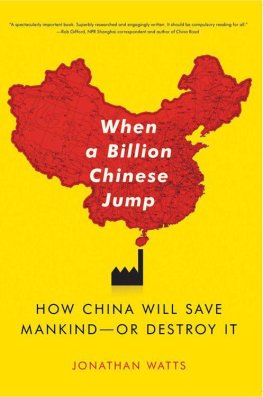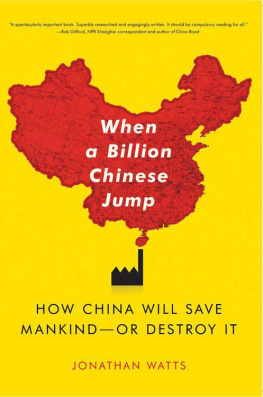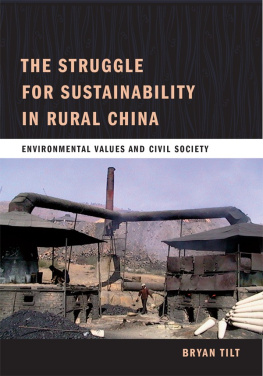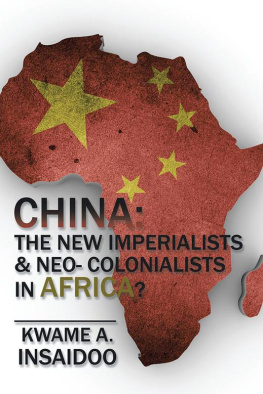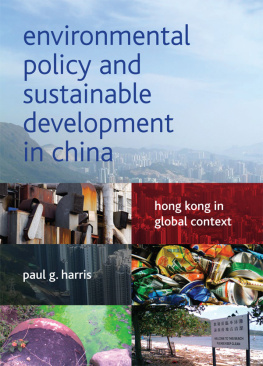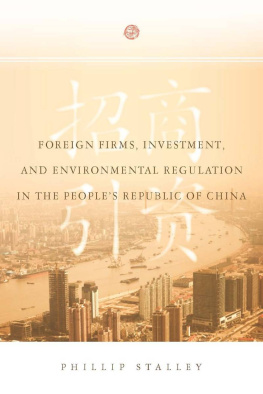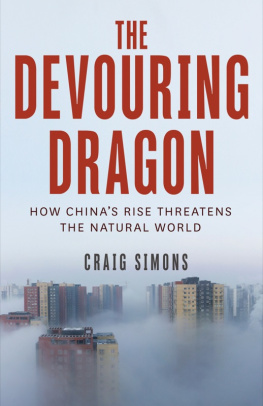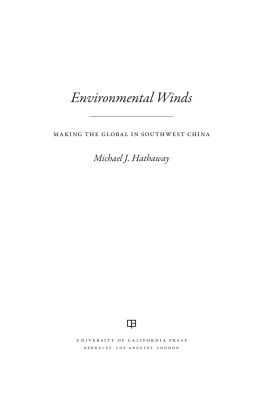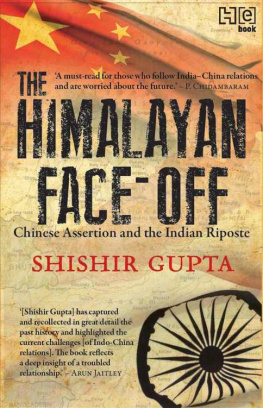Jonathan Watts
WHEN A BILLION CHINESE JUMP
How China Will Save Mankind or Destroy It
To Aimee, Emma, and Murray

As a child, I used to pray for China. It was a profoundly selfish prayer. Lying in bed, fingers clasped together, I would reel off the same wish list every night: Dear Father, thank you for all the good things in my life. Please look after Mum and Dad, Lisa (my sister), Nana, and Papa, Toby (my dog), my friends (and here I would list whoever I was mates with at the time), and me. After this roll call, the sign-off was usually the same. And please make the world peaceful. Please help all the poor and hungry people, and please make sure everyone in China doesnt jump at the same time.
That last wish was tagged on after I realized the enormousness of the country on the other side of the world. For a small British boy growing up in a suburb of an island nation in the 1970s, it was not easy to grasp the scale of China. I was fascinated that the country would soon be home to a billion people.1 I loved numbers, especially big ones. But what did a billion mean? An adult explained with a terrifying illustration I have never forgotten. If everyone in China jumps at exactly the same time, it will shake the earth off its axis and kill us all.2
I was a born worrier and this made me more anxious than anything I had heard before. For the first time, my young mind came to grips with the possibility of being killed by people I had never seen, who didnt know I existed, and who didnt even need a gun. I was powerless to do anything about it. This seemed both unfair and dangerous. It was an accident waiting to happen. Somebody had to do something!
Life suddenly seemed more precarious than I had ever imagined. In variations of my prayer, I asked God to make sure that if Chinese people had to jump, they only did it alone or in small groups. But in time, my anxieties faded. With all the extra maturity that comes from turning six years old, I realized it was childish nonsense.
I did not think about the apocalyptic jump again for almost thirty years. Then, in 2003, I moved to Beijing, where I discovered it is not only foolish little oiks who fear China leaping and the world shaking. In the interim, the poverty-stricken nation had transformed into an economic heavyweight and added an extra 400 million citizens. China was undergoing one of the greatest bursts of development in history and I arrived in the midst of it as Beijing prepared for the 2008 Olympics.
The citys transformation was vast and fast. Down went old hutong alleyways, courtyard houses, and the ancient city walls. Up rose futuristic stadiums, TV towers, airport terminals, and other monuments to modernization. Restaurants and bars one day were piles of rubble the next. Tens of thousands of old walls were daubed with the Chinese character chai (demolish). The hoardings around a nearby development site were decorated with giant pictures of the old city and a half-mocking, half-mournful slogan: Our old town: Gone with the wind.
Living amid such a rapidly shifting landscape, it was hard to know whether to celebrate, commiserate, or simply gaze in awe. The scale and speed of change pushed everything to extremes. On one day, China looked to be emerging as a new superpower. The next, it appeared to be the blasted center of an environmental apocalypse. Most of the time, it was simply enshrouded in smog.
Soon after arriving, I walked home before dawn one morning in a haze so thick I felt completely alone in a city of 17 million people. The milky white air was strangely comforting. Skyscrapers had turned into thirty-story ghosts. The world seemed to have vanished. Yet it was also being remade. Overhead, cranes loomed out of the mist like skeletal giants.
Over the following years, the crane and the smog were to become synonymous in my mind with the two biggest challenges facing humanity: the rise of China and the damage being wrought on the global environment. The builders were constructing the most spectacular Olympic city in history. The chimney emissions and car exhausts were destroying the health of millions and helping to warm the planet as never before.
The year after my arrival, Chinas GDP overtook those of France and Italy. Another year of growth took it past that of Britainthe goal that Mao Zedong had so disastrously set during the Great Leap Forward fifty years earlier. From 2003 to 2008, China stopped receiving aid from the World Food Programme and overtook the World Bank as the biggest investor in Africa. Its foreign-exchange reserves surpassed those of Japan as the largest in the world. The former basket-case nation completed the worlds highest railway, the most powerful hydroelectric dam, launched a first manned space mission, and sent a probe to the moon.
This was a period in which the population increased at the rate of more than 7 million people per year, when more than 70 million people moved into cities, when GDP, industrial output, and production of cars doubled, when energy consumption and coal production jumped 50 percent, water use surged by 500 billion tons, and China became the biggest emitter of carbon in the world.3
As a parent, I worried for my two daughters health when the air became so bad that their school would not let pupils out at break times. I feared too for my lungs. A regular jogger since my teens, I found myself wheezing and puffing after even a short run. When the coal fires started burning each winter, I suffered a dry, rasping cough that sometimes left me doubled up. In Beijing I was to suffer two bouts of pneumonia and, for the first time in my life, I was prescribed a steroid inhaler. The city was choking and so was I.
To be in early twenty-first-century China was to witness the climax of two hundred years of industrialization and urbanization, in close-up, playing at fast-forward on a continentwide screen. It soon became clear to me that China was the focal point of the worlds environmental crisis. The decisions taken in Beijing, more than anywhere else, would determine whether humanity thrived or perished. After I arrived in Beijing, I was first horrified at the chaos and then excited. No other country was in such a mess. None had a greater incentive to change.
The environment had become a national security issue and the government started to respond. The leadershipthe hydroengineer Hu Jintao and the geologist Wen Jiabao, or President Water and Premier Earth, as I came to think of themstarted to shift the communist rhetoric from red to green. They wanted science to save nature. Instead of untrammeled economic expansion, they pledged sustainability. If their goals were achieved, China could emerge as the worlds first green superpower. Alternatively, if they failed and the worlds most populous nation continued to leap recklessly onward, our entire species could tip over the environmental precipice.
These were the extremes. The truth was probably somewhere in betweenbut where? That became the biggest question of my time in China. For the first five years as a news correspondent for the Guardian, the environment was my primary concern. After that it became such an obsession that I took six months off for private research trips and then returned to a new post as Asia environment specialist. Traveling more than 100,000 miles from the mountains of Tibet to the deserts of Inner Mongolia, I witnessed environmental tragedies, consumer excess, and inspiring dedication. I went to Shangri-La and Xanadu, along the Silk Road, down coal mines, through dump sites, and into numerous cancer villages. I saw the richest community, the most polluted city, and the foulest sea. On the way I talked to leading conservationists, politicians, lawyers, authors, and Chinas top experts on energy, glaciers, deserts, oceans, and the climate. Most compelling were the stories of ordinary people affected in extraordinary ways by a burst of human development and climate change the like of which the world had never seen before.

